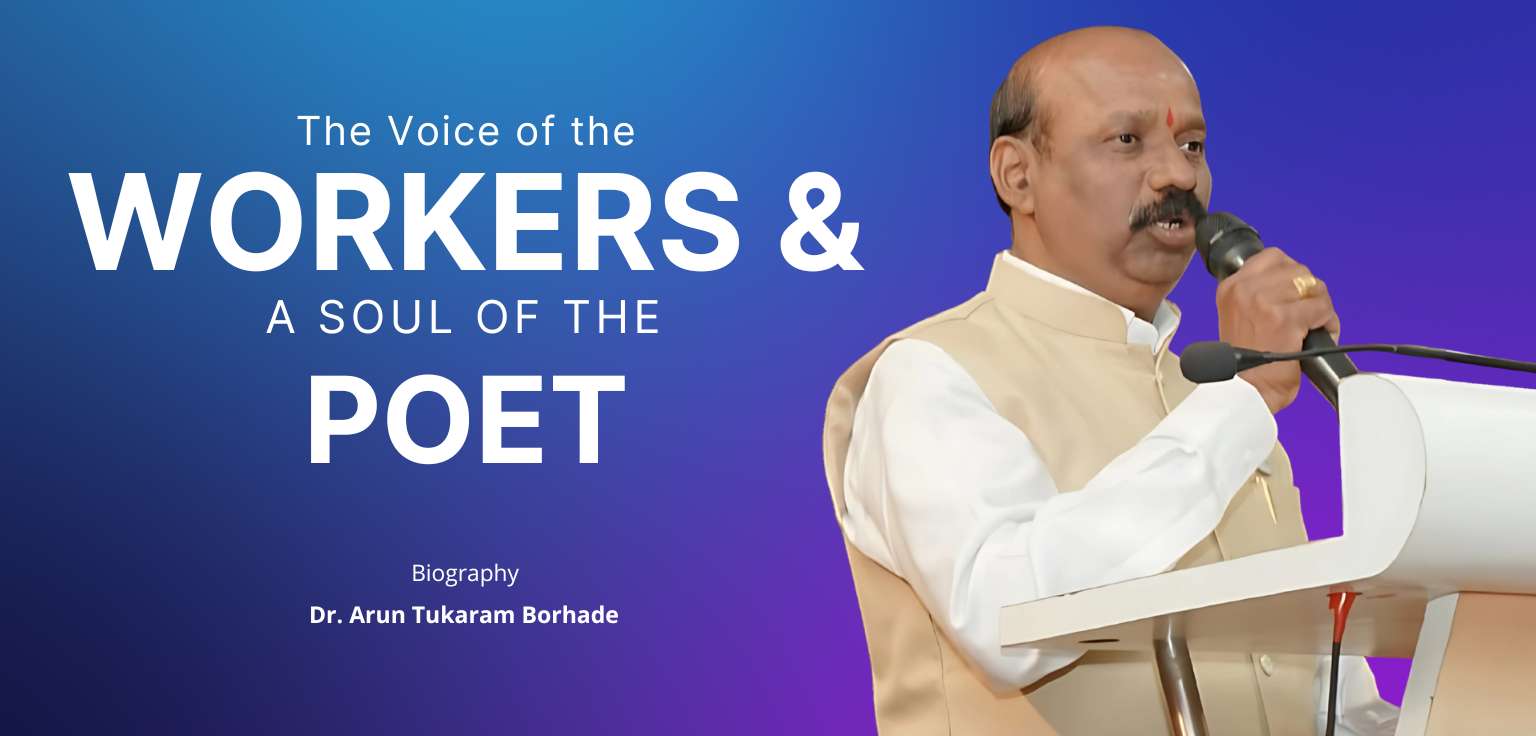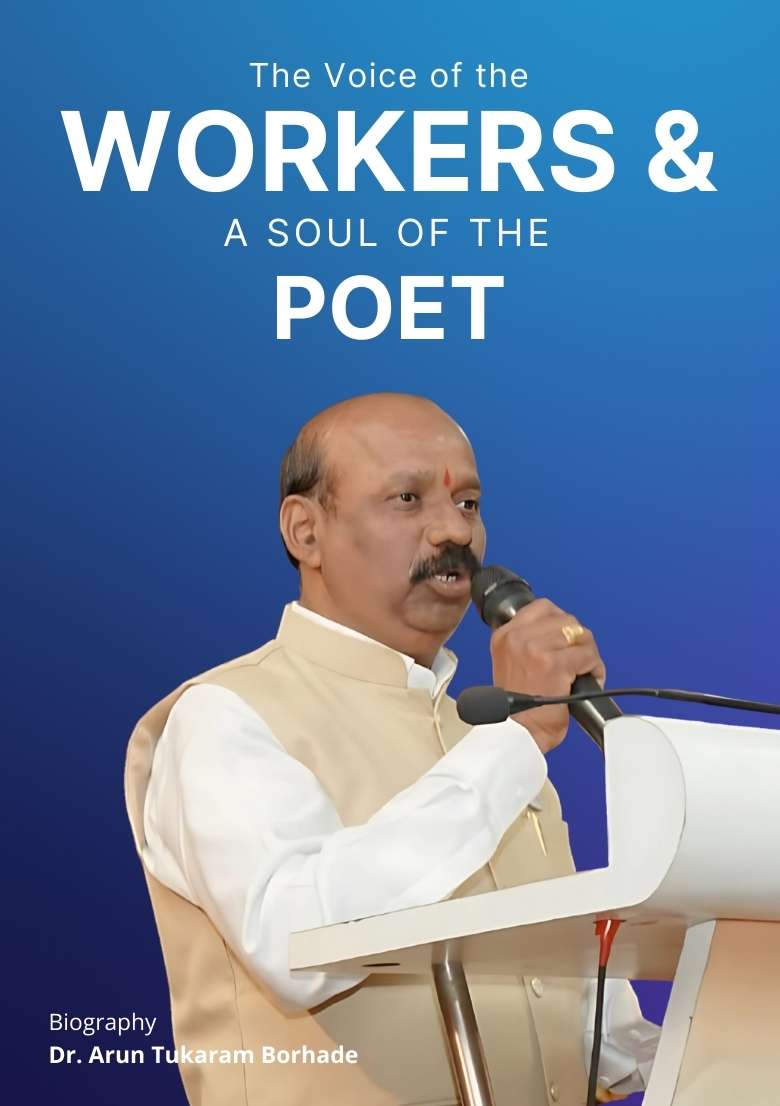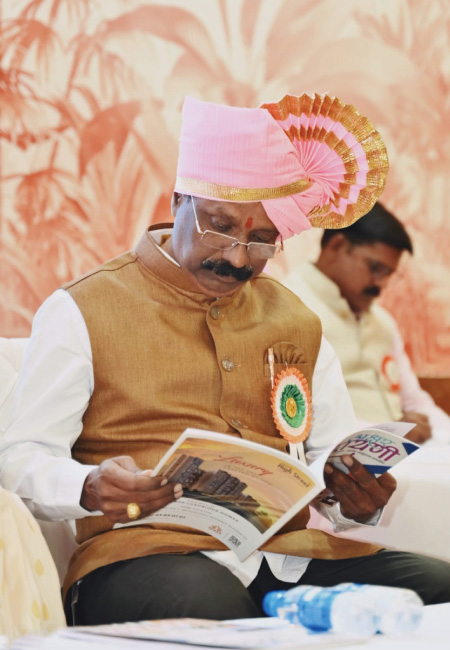

"Be the change that you wish to see in the World."
Dedication
This book is devoted with deepest love and gratitude to my parents, whose values of simplicity, honesty, and service to others became the guiding light of my journey. To my father, who shaped my foundation as both a dedicated teacher and a hardworking farmer, I remain forever inspired by your discipline, wisdom, and resilience. To my mother, whose quiet strength and unconditional care nurtured my spirit, every lesson you instilled continues to resonate in the choices I make and the causes I embrace.
To my entire family, dear friends, and trusted colleagues, each of you has added to the journey by offering guidance, companionship, and encouragement at crucial moments. Your collective warmth and generosity have been a blessing in both my personal and public life.
To my companions in literature, journalism, cultural work, and the labor movement, whose courage and fellowship have given strength to every step I have taken. Together we transformed ideas into realities, and together we stood for dignity, justice, and creativity.
This dedication would be incomplete without acknowledging the many mentors, leaders, and well-wishers who believed in me and allowed me the opportunity to serve. Your trust and recognition gave not only encouragement but also a greater sense of responsibility to remain true to the ideals of fairness, social awareness, and cultural pride.
Finally, to every worker, reader, student, activist, and citizen who has shared a piece of this journey with me, whether through listening to a poem, joining a rally, reading an article, or attending a cultural gathering, you are all part of the story told in these pages. Your respect, encouragement, and faith continue to be the compass of my life.
Dr. Arun Tukaram Borhade
Phase 1 : Childhood Full of Values
“The roots of resilience are planted in the soil of childhood.”“Time is not measured by the passing of years but by what one does, what one feels, and what one achieves.”

Dr. Arun Tukaram Borhade’s journey began in the rustic heartland of Maharashtra, in Moshi village of the Dehu-Alandi region near Pune. The setting of his childhood was modest yet full of values, where farming fields blended with the small school premises that defined village life. Born into a family that represented both education and agriculture, he inherited the dual legacy of knowledge and hard work from his father, Tukaram Borhade, who was not only a dedicated schoolteacher but also a farmer. The father’s role was immense in shaping the discipline and integrity that would later become hallmarks of his son’s personality.
From an early stage, his world revolved around simplicity. Yet, within this simplicity lay an environment that cultivated strong character and clarity of thought. Life in a rural settlement was not easy; resources were scarce, schools functioned with limited infrastructure, and opportunities seemed far away. But what Moshi may have lacked materially, it gave to children like him in values which were resilience, patience, and sincerity. These quiet beginnings carried profound significance because they grounded him in realities that later informed his writing, leadership, and activism.
Academically, Dr. Arun Tukaram Borhade showed remarkable promise. From the very first years of schooling, he displayed keen intelligence and a natural ability to absorb, analyze, and articulate concepts far beyond his age. Teachers quickly recognized him as a bright student. This recognition was not short-lived—he consistently topped his class year after year, earning admiration from classmates, educators, and villagers alike. His success was not built merely on rote learning but on curiosity and determination. Unlike many children who viewed examinations as hurdles, Arun took them as opportunities to measure progress and test discipline.
Beyond books and examinations, he was drawn to the world of expression. School gatherings, cultural programs, and annual events provided the platform where his budding oratory took shape. While other students hesitated before crowds, Dr. Arun Tukaram Borhade looked forward to speaking. Standing on stage with the courage of conviction, he discovered the strength of words and the joy of communicating ideas. It was during these early encounters with public speaking that the seeds of his later leadership and social engagement were sown. His voice, though young, carried sincerity; this sincerity attracted people towards him and earned him respect.
Participation in cultural activities further widened his horizons. Whether it was dramatics, singing, storytelling, or poetry recitation, he actively engaged in creative programs that nourished confidence and imagination. These experiences instilled two important qualities which were self-expression and empathy, both of which strongly influenced his later literary pursuits. Cultural involvement in school also introduced him to teamwork, cooperation, and the importance of collective joy, principles he carried into his future endeavors in labor movements and community activism.
Phase 2 : Journey of Work and Education
“Arise, awake, and stop not till the goal is reached.”

After completing his school education, Dr. Arun Tukaram Borhade stood at a crossroads that many young people from modest rural backgrounds encounter. While he had excelled academically, financial constraints and family responsibilities demanded that he step into the world of work much earlier than he had originally imagined. At that time an advertisement appeared in a newspaper declaring opportunities for apprenticeships at Hindustan Antibiotics, one of the finest pharmaceutical companies of the era. The advertisement caught his eye and he applied in hope of gaining practical work experience as well as a source of steady income. To his delight, he was selected and offered an apprenticeship in the production division of this company.
The experience of apprenticeship brought him face to face with industrial operations on a scale he had never witnessed before. The systematic processes of medicine production, the discipline of factory life, and the diverse workforce introduced him to a completely new world. For a young man coming from a village background, the environment of machines, technical staff, and organized routines was eye opening. He embraced the opportunity with enthusiasm, though it quietly left him with a lingering thought that he had compromised his pursuit of higher education.
His father, who valued education above everything else, was deeply disappointed when he realized that Arun had stepped into industrial life soon after completing higher secondary studies. This became a significant turning point. A stern conversation with his father made Dr. Arun Tukaram Borhade realize that abandoning formal education was not acceptable. To reconcile the situation he promised that he would continue his studies alongside his work. This promise was not only a commitment to his father but also a challenge to himself. He decided that he would prove it was possible to work full time and simultaneously climb the ladder of academic progress.
In the years that followed he accomplished something that required immense dedication. He enrolled in colleges in Pune and continued his studies while maintaining his job in Hindustan Antibiotics. Days would begin early with work in the factory, and evenings would often end in classrooms or libraries. This balancing act demanded great discipline.
Friends and colleagues admired his determination because very few would endure such a rigorous routine. Step by step he advanced in his studies, moving from graduation and ultimately to postgraduate education. He completed a Master of Arts in Politics which sharpened his understanding of society and its governance. Later he also undertook studies in Journalism which gave him a professional insight into communication and media.
Phase 3 : The Literary Voice
“The sword of revolution is sharpened on the whetting stone of ideas.”

The moment of discovery that began with sharing a few poems among college circles soon expanded into a remarkable literary journey for Dr. Arun Tukaram Borhade. What started as simple verses written at night transformed into a disciplined and purposeful pursuit of creativity. He understood that words held immense power when used with sincerity and conviction. Poetry became not only a form of expressing emotions but also a bridge to connect with society at large.
As he matured in his writing, his works began to travel beyond the limited sphere of college events. Magazines and literary publications in Marathi started to carry his poems. With every publication, his confidence grew, and so did his responsibility as a writer. This awareness that literature has the ability to influence thought and uplift communities shaped his approach further. His poems reflected clarity in thought, compassion for the less privileged, and sensitivity towards the natural world. This combination gave his writing a distinctive place in modern Marathi literature.
The published works of Dr. Arun Tukaram Borhade reflect his wide range of thought, blending poetry, essays, reflections on history, and social issues. His poetry collections are particularly powerful, combining lyrical expression with deep concern for social realities. His collection Karyakarta (The Worker) is a moving portrayal of the life and dignity of laborers, while Rajghat explores themes of sacrifice and human values. Chandanyanchya Anganat offers imagery of nature and human emotions, while Maay Maazi Indrayani celebrates the river Indrayani as a cultural and spiritual lifeline of Maharashtra.
His editorial work is equally significant. The book Navodaya, a poetry collection that he helped bring together, reflects his commitment to nurturing literary voices. Similarly, Our Leaders: Our Inspiration is a collection of essays reminding readers of the moral and social contributions of great figures. Wedh Samajik Janivancha is a condensed life journey dedicated to the theme of social awareness, showing his concern for civic duty and responsibility.
He also contributed to preserving history with works like Rashtrabhaktanchi Smarangatha, which collects memoirs of patriots, ensuring that stories of sacrifice were recorded for future generations. Likewise, Akshar Pratimetil Pradnyawant contains reflective articles on prominent social workers and writers, a volume that blends journalism with literary documentation. Together, these books not only showcase him as a poet of sensitivity but also as a chronicler of social conscience. They reveal his belief that literature must not remain in abstract beauty alone, but must elevate and guide society.